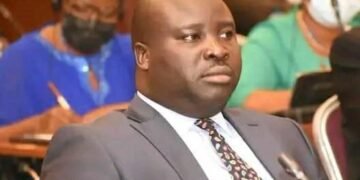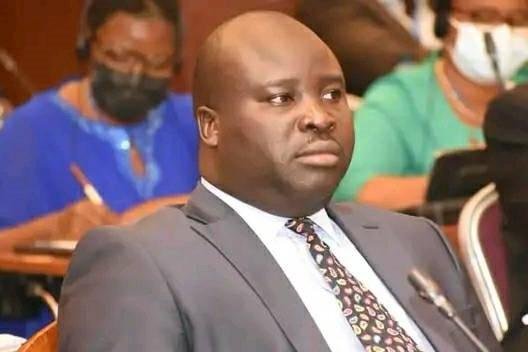The Acting Chairman of the Sudan People’s Liberation Movement in Opposition (SPLM-IO), Oyet Nathaniel has blasted the Intergovernmental Authority on Development (IGAD), African Union (AU), and international community for failing to enforce the implementation of the 2018 RevitalizedAgreement on the Resolution of the Conflict in South Sudan (R-ARCSS).
Nathaniel’s criticism follows President Salva Kiir’s controversial decrees issued on Wednesday night, in which several key SPLM-IO officials were dismissed from their government and parliamentary positions.
The dismissals, announced on the state-owned South Sudan Broadcasting Corporation (SSBC), have deepened existing political tensions and sparked outrage within the SPLM-IO faction loyal to Dr. Riek Machar.
While President Kiir has moved to replace the dismissed SPLM-IO members with individuals allied to Stephen Par Kuol, who was suspended by Nathaniel earlier this year, critics argue that this move undermines the unity and legitimacy of the opposition.
Par’s faction, although aligned with the SPLM-IO in name, is widely seen as lacking any organized military force and viewed by many as politically compromised.
The latest political maneuver has exacerbated the internal schism within the SPLM-IO and cast further doubt on the credibility of the peace agreement, which was intended to end years of brutal civil war and pave the way for national elections in 2026.
In a statement issued on Friday, Nathaniel blamed both regional and international actors for allowing the peace deal to unravel.
“The Guarantors have failed to protect the people of South Sudan and the R-ARCSS from President Salva Kiir. The culture of impunity and atrocities is entrenched in South Sudan,” Oyet stated.
He warned that the absence of meaningful enforcement mechanisms by guarantors has rendered South Sudan vulnerable to renewed political instability, abuses, and violence.
“The failure of diplomatic efforts has left the country ‘vulnerable to political violence, human rights violations, and abuse,’” he emphasized.
Nathaniel particularly criticized the silence of the international community regarding the ongoing restriction of Dr. Riek Machar, First Vice President and SPLM-IO leader, who has faced travel limitations since 2020 and is now reportedly under de facto house arrest as of 2025.
“Dr. Riek Machar Teny was exiled in 2016 for two (2) years and placed under restrictions of no freedom of movement since 2020 and finally placed under illegal house detention in 2025. The Guarantors and the International Partners have the legal and moral obligation to release Dr. Riek Machar Teny,” he stressed.
He further accused President Kiir of deliberately dismantling the power-sharing provisions laid out in the peace agreement by targeting SPLM-IO officials and co-opting opposition positions with loyalists.
This, he argued, amounts to a violation of the agreement’s core tenets, cautioning that Kiir’s decision will trigger another war in the country.
“The peace process has all but collapsed under the watch of international mediators. Attempts to abrogate the Agreement or its non-implementation shall mean the continuation of conflict in the country,” he warned.
As the deadline for elections in 2026 approaches, the viability of the process remains in question.
With the SPLM-IO fragmented, Dr. Machar effectively sidelined, and no clear path forward for national reconciliation, many observers are questioning whether credible elections can realistically take place.
The faction led by Stephen Par Kuol, backed by Kiir’s administration, lacks any meaningful military presence, weakening its claim to represent the broader opposition.
Meanwhile, Machar’s loyalists maintain influence in some parts of the country but are being systematically pushed out of government positions.
The failure of the international guarantors to respond decisively risks further eroding what remains of the peace agreement.












